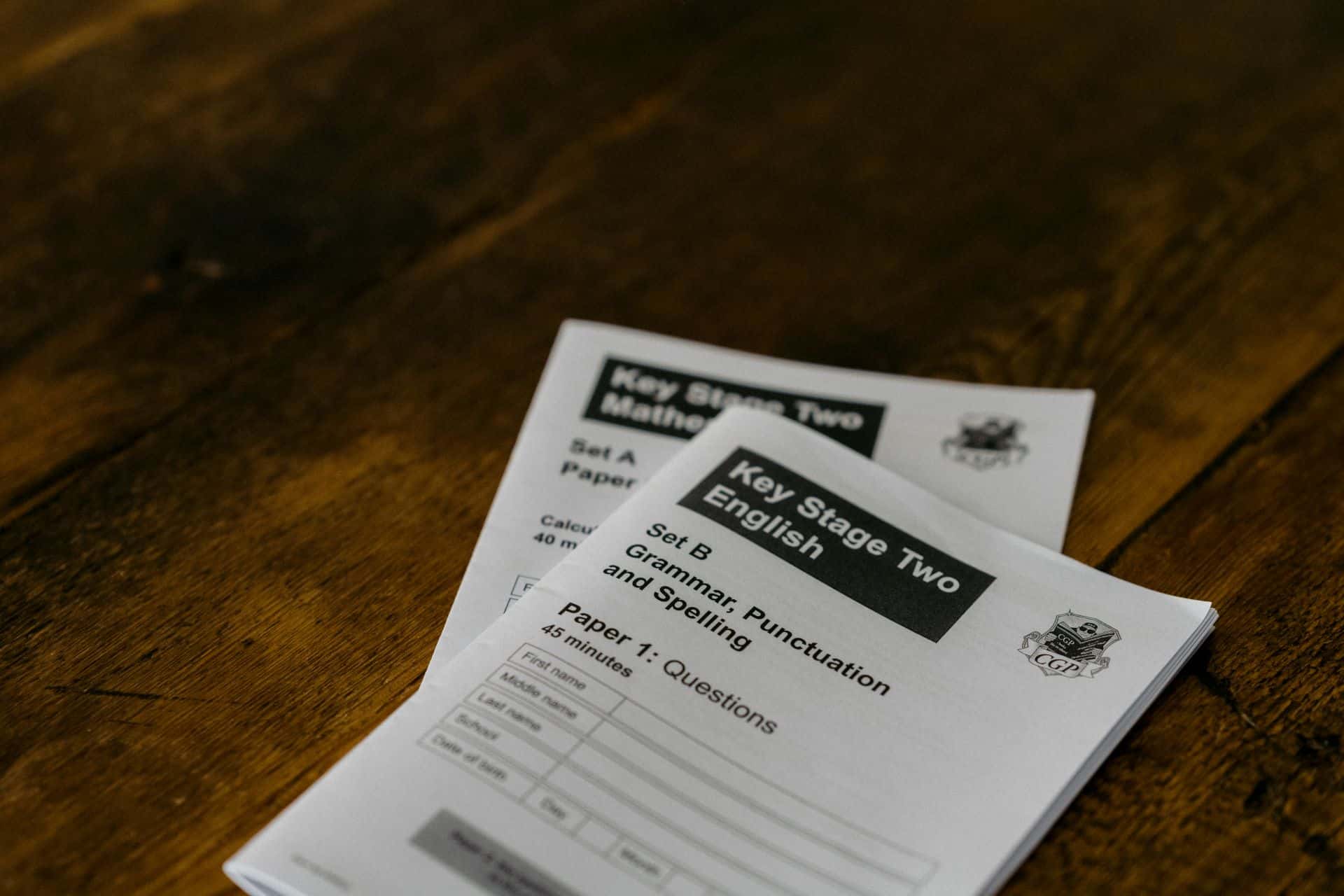The Higher School Certificate (HSC) is the highest award secondary school students can achieve in NSW and signifies the end of your formal education and study, prior to university (or other further education options) or the workforce.
Students usually begin their HSC studies in Year 11. This is known as the Preliminary year. By Term 4 of Year 11, most students will begin their HSC study (effectively starting Year 12 study) in preparation for the HSC examination in October of the following year.
Subjects for your HSC are generally chosen at the end of Year 10 but can be modified later.
There are a number of criteria that must be met by students in order to be eligible to receive their HSC and the associated Australian Tertiary Admissions Rank (ATAR). These include a prescribed number of approved units, at least four HSC subjects, literacy and numeracy proficiency and a minimum of 2 units of HSC English at Year 12 level.
English is the only prescribed subject within the HSC guidelines and is usually also the only prerequisite for entry into most universities, although, depending on the degree, other subjects (such as mathematics) are seen as desirable.
Here is how to know where to find the best private english tutor

Overview of HSC English
There are three approved HSC English courses available to students — English Studies, English Standard and English Advanced. A student studying English Advanced may also elect to enrol in English Extension to complete a double major in English.
English Studies is often undertaken by students who are not necessarily intending to go on to university education but still want the option of an HSC and ATAR. The content of each module is more general and focuses on understanding and communicating in language for common and workplace use through studies of various text types.
'Standard' module content is seen as more 'sophisticated', using increasingly complex texts and language structures, while 'Advanced' is more complex still and involves deeper analysis and a broader application of learning.
Discover the some of the best english tutor in Australia here.

Standard and Advanced English both have common content in the Year 11 unit of work, Reading to Write: Transition to Senior English, while a student enrolled in Year 11 English Studies will instead study the Achieving through English: English in education, work and community prescribed unit of work.
All three courses have a common content unit of work in Year 12 — Texts and Human Experiences. This allows for effective moderation and scaling in the HSC English Exam.
After completing the common content module each year, students are also required to study between two and four additional modules, some of which may be prescribed by the NSW Education Standards Authority (NESA), depending on the course.
Throughout each module, teachers will frequently refer students to the relevant English HSC rubric for assessment, marking and grading purposes. The English HSC rubric should be used as a guide for study and preparation.
Check out the best tips for english tutoring in Sydney here.
What is an Assessment Rubric?
A marking rubric, or assessment rubric, is usually set out in grid form and outlines specific criteria and performance expectations. In most cases, they are differentiated over a 5-point scale.
Initially developed to aid teachers in ensuring fairness in marking, it is now acknowledged that an assessment rubric is a useful tool for students in understanding expectations and improving their performance and work quality.
The marking rubric is most often handed out in conjunction with the assessment task or during the review period for an exam. The rubric and all the criteria are then discussed, with students given the opportunity to ask questions to clarify their understanding. Not only does the rubric assist student understanding of expectations but it also allows them to evaluate their own progress as they work on the assessment piece or study for their exam.
What are the Key Components of the English Rubric for HSC?
There are five broad objectives for English in Years 11 and 12, each of which must be demonstrated through a student's responses to texts and in their writing. These five objectives are:
- communicate through speaking, listening, reading, writing, viewing and representing
- use language to make meaning according to context, purpose and audience
- demonstrate creative, critical and interpretive thinking
- express the self and relationships with others and the world
- reflect on their learning through English studies.
You can search for some of the best english tutor in Hobart here.

Key skills within each of the objectives involve students:
- engaging with a wide range of texts, including modern and contemporary literature and classical literary texts
- asking questions about texts
- creating responses to texts that demonstrate critical analysis and creative understanding
- conducting analysis of language forms and features
- applying an understanding of literary devices and language concepts in context
- writing texts with detailed information, ideas and arguments
- asking questions and explaining assumptions about culture and human society in texts.
While students are encouraged to read widely across a range of genres, NESA has prescribed specific texts for each module and it is these texts that are referred to in the HSC English exam. Text selection varies according to the module level, with English Studies texts having a broader common appeal, while English Standard and English Advanced texts increase in complexity. A student undertaking English Extension is often required to self-select texts to suit specific purposes.
Teachers are tasked to ensure their classes are exposed to a comprehensive sample range of text types, including poetry, film, digital media, classic literature, fiction, creative nonfiction and nonfiction.
How to Use the English HSC Rubric
A sound understanding of the content of the English rubric and what the finer expectations are is crucial when it comes to achieving the best marks possible in your HSC exam for English.
Your teachers will spend time unpacking the features of the rubric, the context and the language that is used to ensure students have a clear understanding of all requirements. There are also published guidelines a student should access regarding the different criteria for each module and the different expectations for English Studies, English Standard, English Advanced and English Extension courses.
Once a student has a good understanding of each component of the HSC English exam and coursework assessment rubric, the best way to use this knowledge is through regular practice of examination style questions and essay responses. The purpose of this is not only to practise answering the types of questions you may be asked during the exam but to use the rubric to analyse your responses and use this analysis to improve.
For example, if an exam essay question asks you to explain how a text excerpt explores the boredom paradox, the student must show a strong conceptual understanding of the text by referring to a relevant sample from the text and using this to justify their analysis of the concept. In contrast, a poor response would be to simply describe or retell the plot or main points of the text sample.
Online, students can find a sample exam pack for each HSC English course (Studies, Standard, Advanced and Extension) for at least the last three years and sometimes longer. Each past exam pack contains:
- sample multi-choice questions
- sample essay questions
- a rubric
- marking guidelines
- answers (or suggested responses)
- analysis of answers provided by past students.
Matching the rubric up with the sample responses and your own responses can be beneficial.
Here is where you can search for some of the best english tutor in Launceston.

Out of each sample pack, possibly one of the most useful inclusions is the 'marking guidelines'. These guidelines are written with the examination markers in mind but are also highly useful for students as part of their preparation.
Each set of marking guidelines includes:
- marking criteria (from the rubric)
- allocated marks for the criteria
- sample question
- sample answer.
It should be noted that the sample answer is often shorter than required; however, it does give the examination marker (and the student) clear ideas regarding acceptable content and gaps that may be present.
On the NESA website, you will also find general English HSC marking feedback on the writing examination papers over a number of years. Like the marking guidelines, this marking feedback is based on the HSC English exam rubric and is useful to alert teachers and students to specific teaching points regarding exam responses. Of particular value is the section referring to areas students could improve their responses — most often, these guide students to provide more detail and less generalisation in their responses.
Understanding a rubric and using it effectively as you go through your sample papers and each practice exam can take time and be tricky for some. If you have decided to work with a tutor, such as a Superprof tutor, they can certainly help you understand and make full use of the rubrics and other available resources.
Summarise with AI:
















